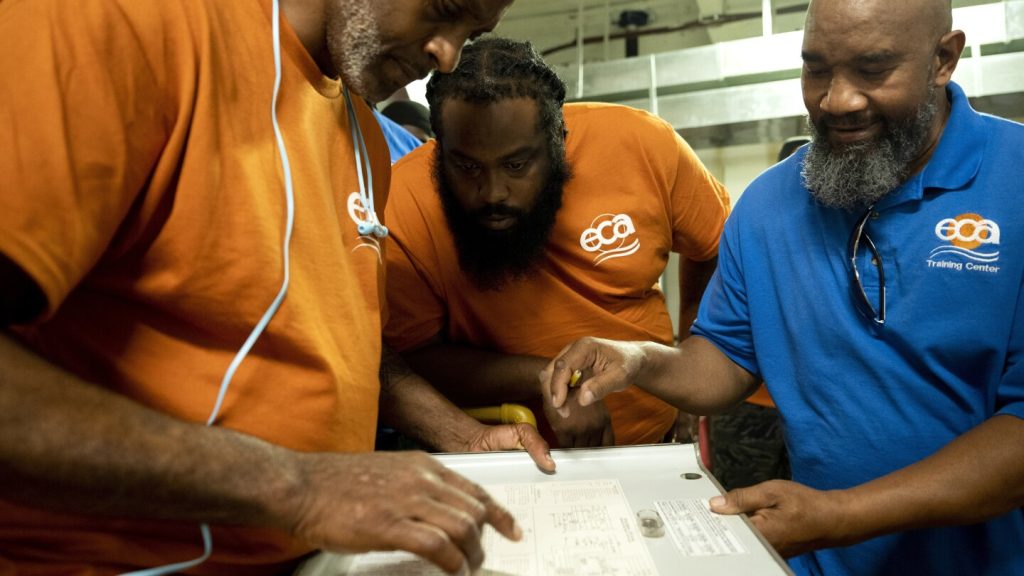In Philadelphia, a building trades instructor named Jackie Robinson is leading a program aimed at training people to work on homes in ways that address climate change and make clean energy affordable. More than 3.3 million people work in the clean energy industry, but Robinson is concerned that these jobs are not widely understood, especially among low-income individuals. Robinson himself transitioned into the clean energy workforce after spending 27 years in prison for a drug trafficking conviction. His motivation was to learn new skills so he could take care of his three young children when he was released.
Robinson took courses in welding, carpentry, accounting, and more while incarcerated, ultimately landing a job with Johnson Controls, an international building equipment company that offered classes inside the prison system. After working with them and another organization that offered apprenticeship programs, Robinson found his way to the Energy Coordinating Agency, a nonprofit focused on energy equity housed in a warehouse in Philadelphia. There, he leads classes on installing solar panels, practicing circuits, and more, with the goal of empowering his students with valuable skills for the clean energy industry.
Quenton McClellan, a student at the Energy Coordinating Agency, found out about the training program from his workforce advisor at Narcotics Anonymous. Previously struggling with alcohol and drug abuse while working as a bartender, McClellan decided to get help and is now two years drug- and alcohol-free. He is training to install heat pumps, a climate-friendly replacement for old furnaces and air conditioners. As the demand for workers in the clean energy sector grows, organizations like the Energy Coordinating Agency play a crucial role in training individuals for these important jobs.
The Inflation Reduction Act of 2022, with its tax credits for heat pumps, solar panels, and clean energy manufacturing incentives, is expected to create over 109,000 new jobs. Heat pumps can be installed anywhere, creating a need for workers in every state. Through his lessons on installing heating and air conditioning systems, Robinson aims to equip his students with the skills needed to meet this growing demand. His commitment goes beyond the classroom, as he often texts students to check on them, offering guidance and life advice to ensure their success in the program.
The Energy Coordinating Agency trains over 200 people each year in various clean energy fields, offering classes for free with funding from grants. Low-income individuals from the neighborhood can also receive assistance with utility bills and budget counseling. For Robinson, seeing students who have felt “left out of the equation” start careers and support their families is a source of fulfillment. He sees his work as building a legacy by passing on valuable skills to the next generation and empowering them to earn a living and increase generational wealth through the clean energy industry.















